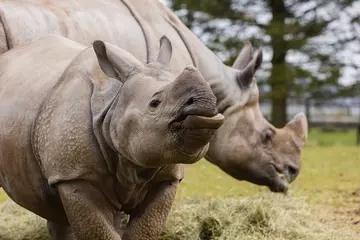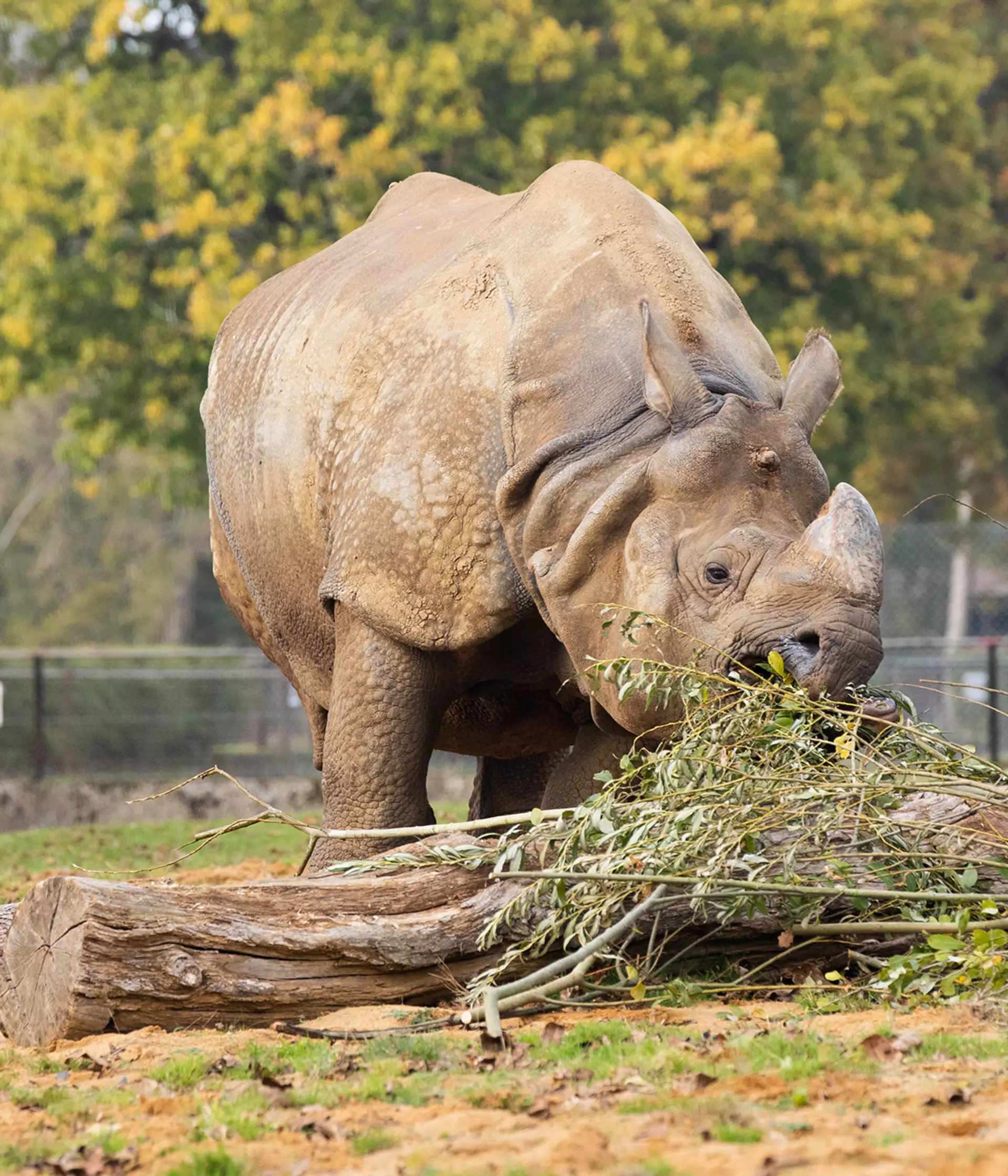
Greater one-horned rhino facts

How many rhino species are there?
The rhino has been around for 50 million years and today just five species remain. One of these species is the greater one-horned rhino, or greater one-horned rhinoceros. The species is also known as the Asian rhino or Indian rhino.
What do greater one-horned rhinos look like?
- Greater one-horned rhinos are the second largest species of rhino, after the white rhino.
- They have the most folded skin of all rhino species. The folds help the rhinos to regulate body temperature by increasing the surface area.
- They have thick grey skin, changing to pink in the folds and of course a distinctive horn on the end of the nose, as well as small bumps on their shoulders and upper legs.
- Instead of using their horn to fight, the males use their long, sharp lower teeth.
What do greater one-horned rhinos eat?
Greater one-horned rhinos eat grasses, fruit, leaves, shrub and tree branches. They have a folding upper lip that can grasp leaves and twigs but can fold it away to graze on the tall grass of the terrain.
Are there rhinos at Whipsnade Zoo?
Yes, Whipsnade Zoo is home to both southern white rhinos and greater one-horned rhinos.
Visit our rhinos at Whipsnade Zoo
Look out for our greater one-horned rhino, Hugo, in our Rhinos of Nepal exhibit. Male rhino Hugo was born in Rotterdam Zoo in Holland. He's a gentle giant who loves to swim and can often be seen relaxing in his indoor pool. He's a bit goofy and keepers describe him as a 'lovable Labrador'. He loves a fuss and enjoys being trained by his keepers, as long as there are apples involved!
There are only around 3,700 greater one-horned rhinos left in the wild and they are under threat from habitat loss, human-wildlife conflict, and poaching for their horns. These animals are restricted to less than a dozen protected areas, scattered across north and north-eastern India and southern Nepal.
Find the perfect present in our online shop with our rhino gifts! Every purchases supports ZSL's vital science and conservation work.
